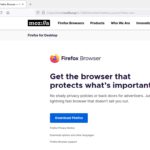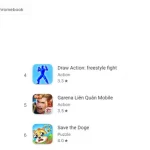A radio is a device that uses electromagnetic waves to transmit sound. It works by converting electrical signals into sound waves, which are then broadcasted by a loudspeaker. Radio broadcasts can be received by anyone with a suitable receiver.

Here are some interesting facts about this ever-popular form of communication.
Fun Facts About Radio
WLW (700KHz AM) was the most powerful commercial radio station ever. During certain times in the 1930s, it broadcasted 500kW radiated power. The station’s high power broadcasts created interference problems with other stations, and in 1941 the FCC limited WLW’s power to 50kW. Even at reduced power, WLW remained one of the most listened-to stations in the country.
People in the 1980s were able to download video games from a radio broadcast by recording the sounds on a cassette tape and playing it on their PCs. It was a great way to get new games, and it was also a lot of fun. The process of downloading games has changed a lot since then, but the basic idea is still the same. You can now find games online and download them directly to your computer, without having to use a cassette tape.
On the 28th of September 2006, Reykjavik’s City Council and neighboring municipalities agreed to turn off all city lights for 30 minutes to host a renowned astronomer discussing the stars and constellations on nationwide radio. This was done in order to give residents a chance to enjoy the natural beauty of the night sky. The event was a great success, and it inspired similar events in other cities around the world. Today, “dark skies” are becoming increasingly rare, as light pollution continues to grow. However, events like this show that there is still a desire to experience the darkness of night and view the stars in all their glory.
Rockstar Games provided fans the opportunity to phone a number in 2007 and express their frustrations with America. The best rants were broadcast on the radio station WKTT in GTA IV. This was a unique way for fans to voice their opinion about the country and the state of America at the time.
“How You Remind Me” is a song recorded by Canadian rock band Nickelback. The song peaked at number one on both the Billboard Hot 100 and Mainstream Rock Tracks charts and is aptly considered their breakout hit. “How You Remind Me” is the decade’s most played song on U.S. radio.
Since 1982, a mysterious Russian radio signal has been transmitting continuously. Known as UVB-76, or “The Buzzer“, the signal consists of a short, repetitive buzzing sound that repeats approximately 25 times per minute. The signal is believed to originate from Moscow, but the identity of the broadcaster remains unknown. Every few years, the signal will broadcast a string of random names and numbers, leading some to speculate that it may be used for coded communications. However, the true purpose of UVB-76 remains a mystery.
The term broadcasting actually has its origins in agriculture. In the mid-18th century, farmers began using the word to describe the practice of wide scattering of seeds. The goal was to ensure that the seeds would have a better chance of taking root and growing into healthy plants. Today, the term is most often used in the context of broadcasting television and radio signals. However, it can also be applied to other situations where information is widely disseminated, such as social media or even conversations among friends. In a way, broadcasting has come full circle, returning to its roots as a means of spreading information far and wide.
In 1981, a man took a radio station manager hostage in Southern California. His demands were simple: he wanted the song “Rainbow Connection” to be played on repeat for the next 12 hours. Fortunately, the bomb he claimed to have was a fake, and the hostages were released unharmed. However, the incident highlights the power of music to inspire passion – even in the most unlikely of fans.
Robert Plant made a $10,000 donation to KBOO, a non-profit community radio station in Portland Oregon, with a very specific request – that the station never plays “Stairway to Heaven” again. Plant has said that he loves the song and is proud of what it has accomplished, but he also believes that it has been overplayed to the point of becoming a “cliche”. He hopes that by making this donation, he can encourage KBOO to play some of the other great songs in their library.
In 2005, a radio station set out to create the ultimate rock supergroup. They polled 3,500 music fans to choose the greatest musician of all time for each instrument. They ended up creating Led Zeppelin as a result. While this may seem like an unusual choice, it’s hard to argue with the results. Led Zeppelin is widely considered to be one of the greatest rock bands of all time, and their musicians are some of the most skilled in the world. With this in mind, it’s easy to see why they were chosen as the best of the best.
As Apollo 13 limped back to Earth, it was clear that radio interference was going to be a major problem. The Apollo 13 transmission frequency was in the same band as the Soviet Union’s Spacewatch project, and there was a risk of the two signals interfering with each other. The Soviet Union shut off radio transmissions in the frequencies used by Apollo to avoid interference during a key moment in the Apollo 13 mission.
Each year, millions of birds are killed by flying into radio antennas. In fact, these collisions are one of the leading causes of bird deaths in North America. The good news is that there is a simple solution that can reduce the death toll by up to 70%. All it takes is changing the static red light on the antenna to a blinking light. Blinking lights are much easier for birds to see, and they help to avoid collisions. In addition, many bird enthusiasts believe that blinking lights are more aesthetically pleasing than static lights. So not only would this change save lives, but it would also make our radio antennas more visually appealing.
If you’ve ever wondered what kind of music NASA astronauts jam out to while they’re orbiting the Earth, the answer is – alternative rock. That’s right, NASA has its very own radio station, and the only thing they play is alternative rock. The station, called Third Rock Radio, is available to anyone with an internet connection. And while it might seem like an odd choice for a space agency, Third Rock Radio is actually a great way for NASA to connect with the public. The station offers a unique blend of music and news, and it’s a great way to keep up with what’s going on at NASA.
Most people have seen the little black or silver plastic thing at the end of data cables and other electronic cords, and most people just assume that it is some kind of decorative end-cap. In fact, this little plastic object has a very important function – it is called a Ferrite Bead, and its purpose is to block interference from radio signals. Radio interference can come from other electronics, like cell phones or microwaves, and can cause data loss or corruption. The Ferrite Bead acts as a filter, letting the signal through while blocking the interference. This helps to ensure that your electronic devices are able to communicate clearly and without error.
Electromagnetic Hypersensitivity (EHS) is a condition that some people believe they suffer from in which they experience a range of symptoms in reaction to electromagnetic fields. These symptoms can include headaches, fatigue, and difficulty concentrating. While there is no scientific evidence to support the existence of EHS, some sufferers are convinced that their condition is real. In an effort to find relief, a small number of people have relocated to the US Radio Quiet Zone. This 13,000 square mile area in West Virginia, Virginia, and part of Maryland was established to prevent interference with radio telescopes. As a result, wireless transmissions are banned in the area, providing EHS sufferers with some respite from their symptoms. While the Quiet Zone may not be a perfect solution, it does offer some measure of relief for those who believe they suffer from this controversial condition.





